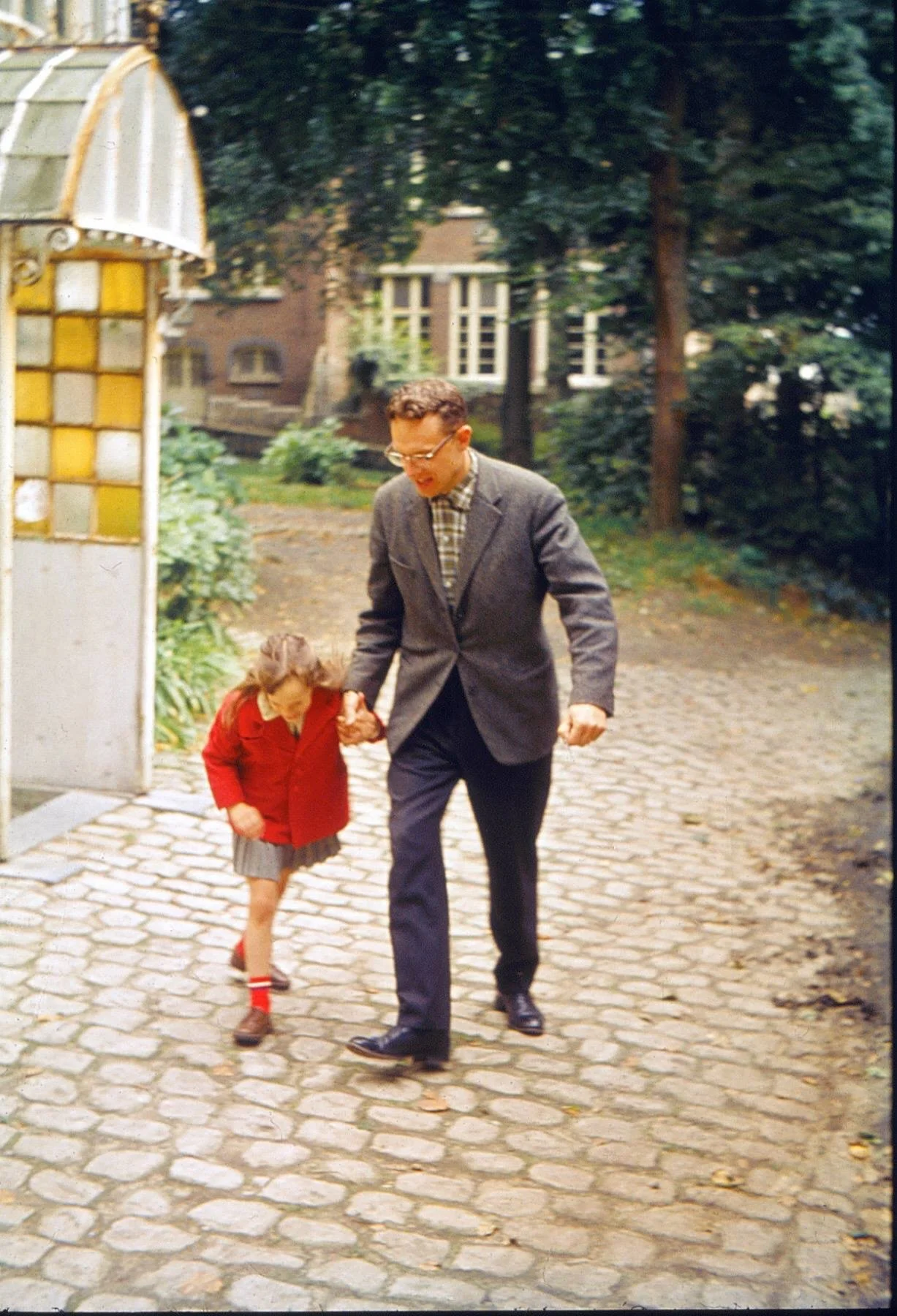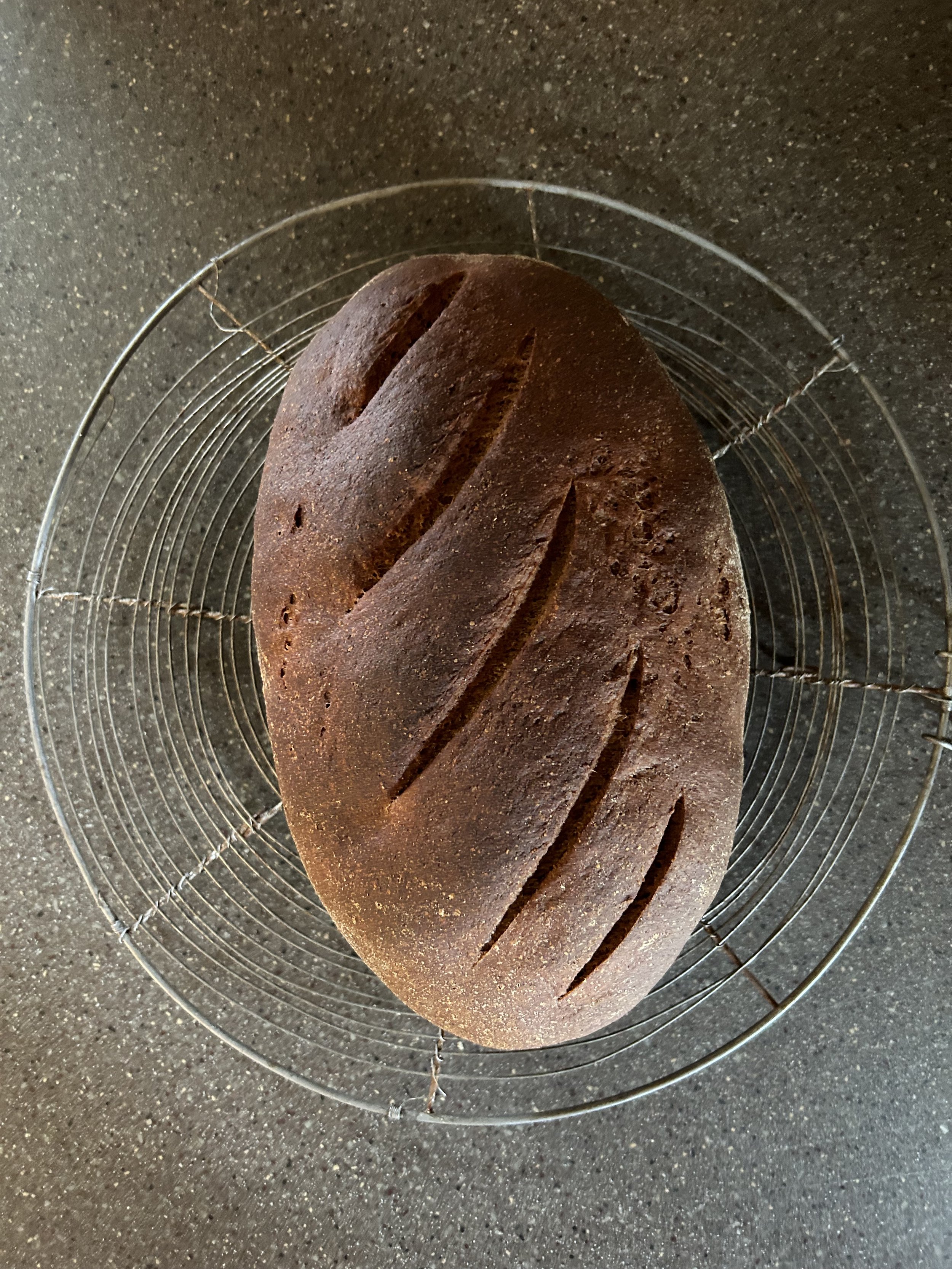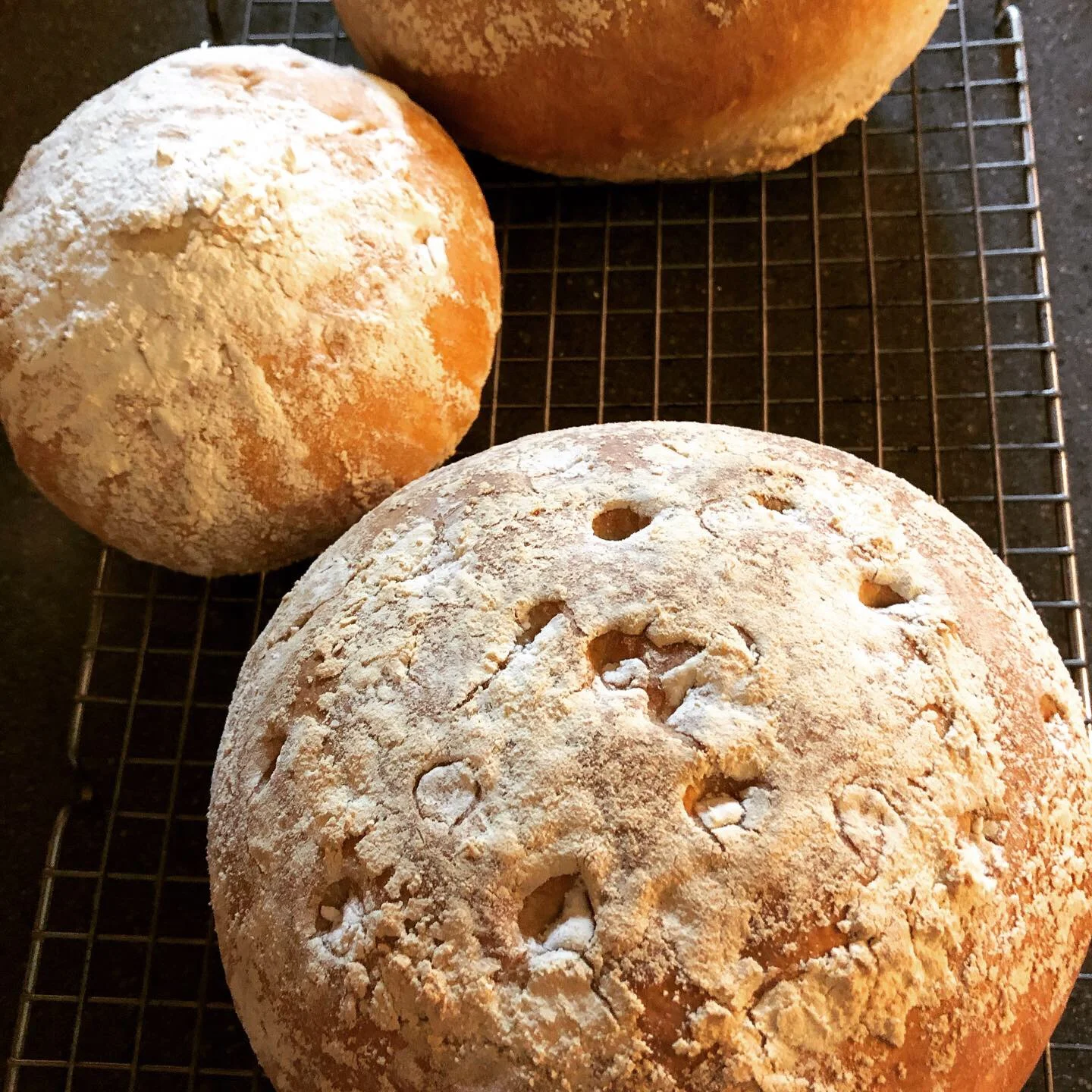When in Heidelberg…
Shortly after my father died, I dreamt of him. In my dream, we were both sitting on a wooden bench in a lush garden above an old German city. I turned toward him and asked, “And how are things in Heidelberg?” He somehow knew that Heidelberg was my code word for afterlife. He turned toward me and replied, “It’s been a very rich time. I’ve met some interesting people and have had some great theological discussions.” I nodded and reached toward him to pat his shoulder, and then awoke, knowing I had just experienced a blessing.
Aberdeen, Scotland
This is what I remember about my father some ten years after his sudden death. He could go out for weekly breakfast to Angel’s House of Pancakes with Dave who he had met at the dialysis clinic and chat about local culture and daily life and later be on the phone with Mark to chat about his doctoral dissertation on the Prophet Harris in the Ivory Coast. His span of knowledge and his curiosity were unlimited and continued until his death. When my brother sat down in his chair, he found ten books piled on the floor, including a novel, the Quran, a book about soccer and a book on pacifism, all with notations about ideas or questions that mattered to him.
Of course, mostly what I remember are my early years spent with him. Though often absent because of the passion he carried for his work, when he was present, he was fully engaged. Being the daughter of a pastor meant that often my father’s seat was empty at the supper table because he had been held up by a lengthy committee meeting in Brussels, a parishioner needing a listening ear or a phone call from someone asking for assistance. I remember answering the phone for him and saying that I was his secretary and would they like to leave a message. Or writing him a note in my childish script to put down in front of him while he was on the telephone in his office: “Le dîner est prêt! (Dinner is ready!)”. I didn’t want to share him during our meal together! When my father finally joined us, I always knew that there would be something to learn. The lively conversation would seesaw from English to French. A discussion about politics and war, a critique of a news story, a detailed review of a historical event, a briefing on philosophy, an explanation of a religious view, these were all part of our supper table and often we would have to pull out the big encyclopedia to ascertain a date, a spelling or a definition. Though finished with our food, we often lingered at the table to finish whatever discussion had started.
In his later years, when I ran Rachel’s Bread, he regularly came for a meal and thoroughly enjoyed the annual feast I offered to my customers. And he would ask from time to time, “When are you making Heidelberg Rye bread again? That’s my favorite!” Maybe that’s why we had that conversation in my dream after his death.
So here’s the recipe for Heidelberg Rye bread. It’s especially good for a Reuben sandwich, always reminds me of my dad and maybe takes me just a little bit closer to heaven!
Heidelberg Rye Bread
3 c. white flour
3 c. rye flour
2 pkg. yeast
¼ c. cocoa
1 T. sugar
1 T. salt
2 c. hot water
⅓ c. dark molasses
2 T. canola oil
In a large bowl, measure out 1 ½ c. white flour, 1 ½ c. rye flour, yeast, salt, sugar and cocoa. Mix then add the water, molasses and oil. Beat 100 strokes, until dough pulls in ribbons from the side of bowl. Gradually add flour, ½ c. at a time, alternating between the rye and the white until the dough is no longer sticky.
Turn dough out onto a counter and knead for 5 minutes until soft and velvety, adding flour as needed.
Cover the dough with a bowl and let rest for 20 minutes.
Then divide the dough and shape into two oval loaves. Place on a greased baking sheet. Cover loosely with a plastic bag and rest in the refrigerator for 2 to 4 hours. Remove from the refrigerator then preheat the oven to 400°. With a sharp blade, cut angled slits on the tops of each loaf and bake for 20 minutes. Turn the pan and bake for another 20 minutes.
Remove from the oven and place on a rack to cool. Enjoy!








